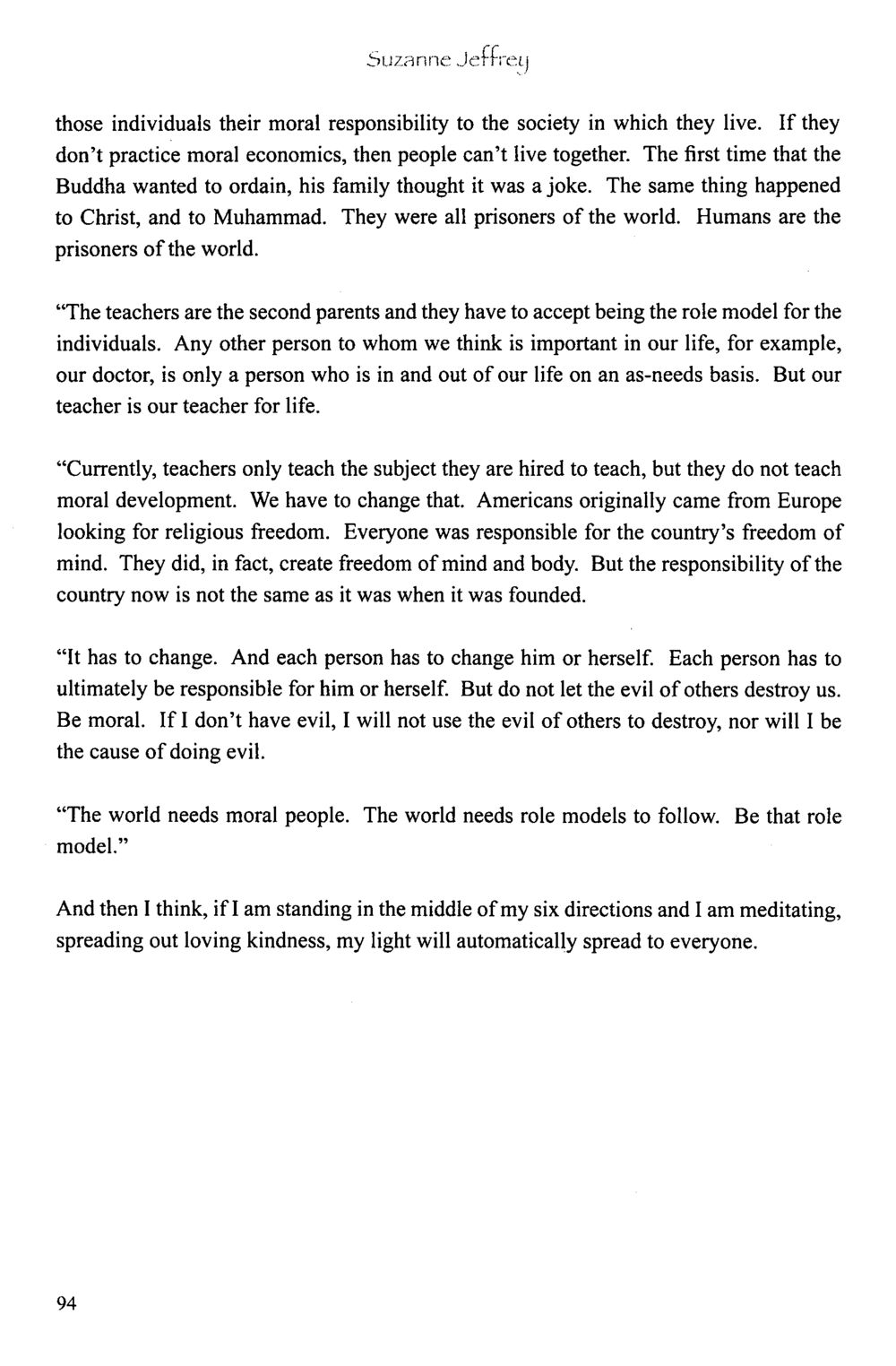The Moral Responsibility of Individuals in Society : หน้า 95/164
The Meeting with a Dhamma Master : หน้า 95/164 Exploring the moral duties individuals have towards society and the role of teachers as lifelong mentors.
1 ครั้ง

สรุปเนื้อหา
This text discusses the moral obligations individuals face within their communities. It emphasizes the vital role of teachers as lifelong guides in moral development, contrasting with other temporary relationships. The author reflects on historical figures like Buddha, Christ, and Muhammad, framing their struggles within the context of societal expectations and personal liberation. It argues that a shift towards nurturing moral values is essential for societal well-being, urging individuals to take personal responsibility for moral action and to become role models for others. The piece concludes with a call for loving kindness and positivity, suggesting that through meditation and compassion, one’s inner light can positively influence the world.
หัวข้อประเด็น
- Moral Responsibility
- Role of Teachers
- Historical Figures and Their Influence
- Importance of Moral Economics
- Personal Transformation
- Spreading Loving Kindness
ข้อความต้นฉบับในหน้า
หน้าหนังสือทั้งหมด




































































































































































